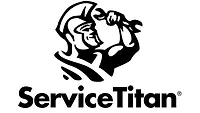How specialty contractors can drive collaboration and project quality
Adopting technologies helps mechanical contractors stay coordinated and deliver quality.


Integrations enable you to automate data transfer so you can remain in sync with the different teams involved on different workflows, even if they’re using different technology solutions.
No matter who you are, project management can be a challenge. This is particularly true if you’re a specialty contractor tasked with cross-team collaboration, given the number of organizations using different technologies or paper formats involved on construction projects.
Despite the risk of information overload, specialty contractors still have the ability to take ownership of their project workflows, and drive collaboration and project quality. When discussing this pursuit with specialty contractors across the industry, we consistently encounter the importance of achieving three key milestones: Digitizing, integrating and optimizing.
Digitizing
The construction industry is moving away from paper processes, but some in the industry do still use paper. Additionally, there aren’t many construction technology standards in place, so organizations across the industry use a variety of different solutions. Without adopting technologies of your own to organize and make sense of all the information you’re getting from various sources, you’re likely to suffer from information overload, making your ability to collaborate with project partners harder than it needs to be.
Adopting a digital bid management solution, for example, can make it easier for subcontractors to bid more, bid smarter and enhance bid quality. Your team can organize and track bids, while also referencing all project notes and following up with leads from one place. With your activity and progress automatically tracked, you can also stay aware of which general contractors you’ve had success selling to and focus on building your relationships there. Additionally, having all your key information in one, easy-to-access space can ensure you and your teams don’t miss important details and minimize mistakes in communications during the bidding process.
Integrating
Of course, by adopting technologies for your own teams, you will not solve the problem of organizations across the industry using different solutions. However, you may still be able to automate information transfer between different applications to simplify data management and deliverables with project partners. How? Find technologies that integrate with other commonly used solutions in the industry.
Let’s say, for example, you are a mechanical contractor working on an assembly. Your team might use one document management solution during the buildout, while the designer is using another. Without the two solutions integrating, your team wouldn’t be able to see new design updates that could immediately impact the assembly work being done, or vice versa — the design team could not receive an update on build issues that could immediately impact the viability of their designs.
Integrations enable you to automate data transfer so you can remain in sync with the different teams involved on different workflows, even if they’re using different technology solutions. The streamlined communication across solutions means no one on the team has to take on tedious, manual data entry tasks, and everyone can remain focused on collaborating for decision-making and driving productivity.
Optimizing
Once you digitize and capture more critical information with integrated workflows, you will also gain the ability to draw insights from your data and start optimizing operations.
Try to get your project’s digital footprint into one common data environment so you can quantify and evaluate your team’s performance data. You can analyze metrics such as your hit ratio, “best” customers, safety rates and top project risks, for example. Armed with insights on your strengths and weaknesses, you’ll be better equipped to win more projects and improve profitability while also enhancing your team’s quality of work.
The technology keystone
In the reality of today’s global construction market, industry organizations need to adapt and do more with less — and specialty contractors are no exception. Increasing populations require more infrastructure across segments — heavy civil, commercial, health care, residential, etc. —and most construction firms report difficulty finding skilled specialty contractors. The safety, financial and supply chain restrictions faced by the industry in 2020 further strain the market.
Even with the current market dynamics, adopting technology to digitize, integrate and optimize your workflows can help you stay coordinated with your teams and deliver quality. As my friend Chris Anderson, an estimator at Sorella Group, would say: “If you’re not willing to adopt technology, you’re going to fall behind. Take the plunge!”
Looking for a reprint of this article?
From high-res PDFs to custom plaques, order your copy today!






